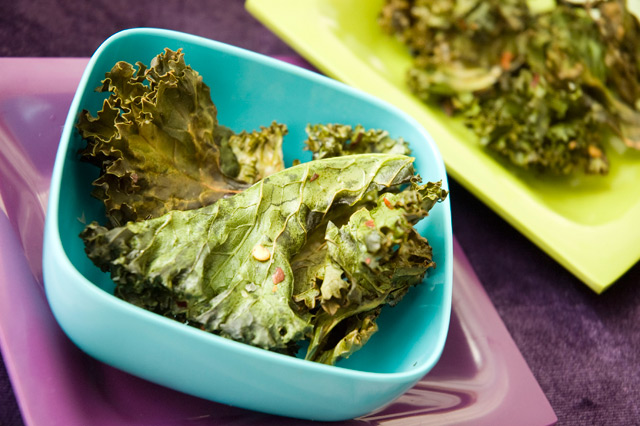Snacks That Turn You Invincible, Volume 1: Kale Chips
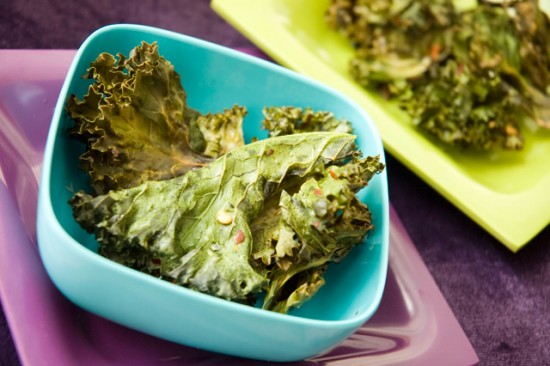
Check out this healthy snack I just tried from White On Rice Couple! It’s just kale!
Last summer I became temporarily obsessed with the idea that you could make something resembling delicious ice cream with just one healthy ingredient (bananas), and this is like that, only savory instead of sweet. It’s a kind of crispy chip snack, and it’s only made from kale. Kale is like lettuce, if lettuce somehow acquired so many vitamins it just couldn’t handle itself and started going all frilly around the edges.
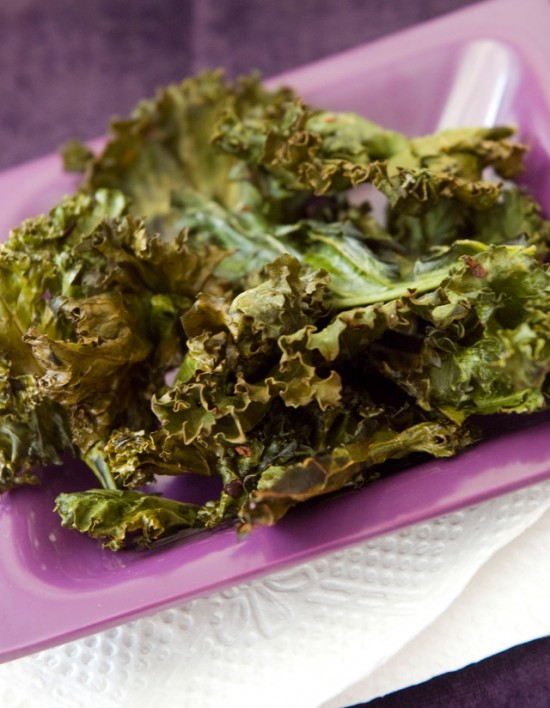
Okay, I lied a little bit about the one-ingredient thing. Whereas Banana-fana Faux Ice Cream can be made with literally nothing but bananas, kale chips also require a little oil and some seasoning to be delicious. But that stuff hardly counts as ingredients. It’s more like… okay, it’s ingredients. But it’s still not many.
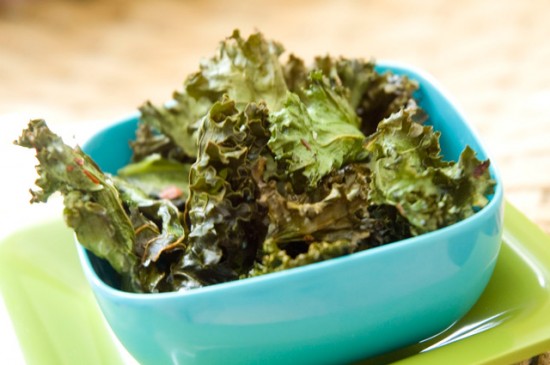
I took my first batch out of the oven a little early, before each piece had fully crisped, and the parts that were still soggy (and chewy, and a little damp) tasted like—well, they tasted like kale, probably, when kale isn’t made into chips, but John used a slightly more colloquial term after his first bite. Then he ran to get a drink. Don’t take your kale chips out of the oven before they’re ready.
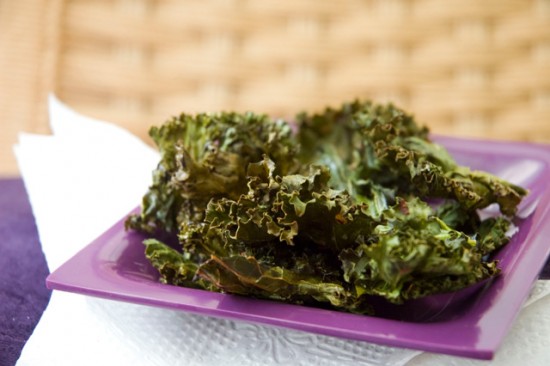
My second batch crisped up very nicely and they were delicate and airy and salty and nobody had anything negative to say, although for some reason I had felt compelled to add more pepper the second time, so there was a lot of frantic tea-sipping all around. I didn’t mind the spiciness but next time I might go a little easy on the pepper. Because there absolutely will be a next time. They may not be quite a substitute for potato chips, but check out these hot kale stats:
- One cup of kale contains 36 calories, 5 grams of fiber, and 15% of the daily requirement of calcium and vitamin B6 (pyridoxine), 40% of magnesium, 180% of vitamin A, 200% of vitamin C, and 1,020% of vitamin K. It is also a good source of minerals copper, potassium, iron, manganese, and phosphorus. (via WebMD)
And that’s not all! The following is from Nutrition-and-you:
- Versatile, sweet Kale is widely recognized as an incredibly nutritious vegetable for its low fat, no cholesterol and powerful anti-oxidant properties.
- Kale, like other members of the brassica family, contains health promoting phytochemicals, sulforaphane and indole-3-carbinol that are appears to protect against prostate and colon cancers.
- Di-indolyl-methane (DIM), a metabolite of indole-3-carbinol has been found to be an effective immune modulator, anti-bacterial and anti-viral agent through its action of potentiating “Interferon-Gamma” receptors.
- Borecole is very rich source of ß-carotene, lutein and zeaxanthin. These flavonoids have strong anti-oxidant and anti-cancer activities. Beta carotene is converted to vitamin A in the body.
- Zeaxanthin, an important dietary carotenoid, is selectively absorbed into the retinal macula lutea in the eyes where it is thought to provide antioxidant and protective light-filtering functions. Thus, it helps prevent retinal detachment and offers protection against “age related macular degeneration disease” (ARMD) in the elderly.
- It is very rich in vitamin A, 100 g leaves provide 512% of RDA. Vitamin A is required for maintaining healthy mucus membranes and skin and is also essential for vision. Foods rich in this vitamin offer protection against lung and oral cavity cancers.
- It is one of the excellent vegetable sources for vitamin-K; 100 g provides about 700% of recommended intake. Vitamin K has potential role bone health by promoting osteotrophic (bone formation and strengthening) activity. Adequate vitamin-K levels in the diet helps limiting neuronal damage in the brain; thus, has established role in the treatment of patients suffering from Alzheimer’s disease.
- This leafy vegetable is notably good in many B-complex group of vitamins such as niacin, vit.B-6 (pyridoxine), thiamin, pantothenic acid, etc that are essential for substrate metabolism in the body.
- It is also rich source of minerals like copper, calcium, sodium, potassium, iron, manganese and phosphorus. Potassium in an important component of cell and body fluids that helps controlling heart rate and blood pressure by countering effects of sodium. Manganese is used by the body as a co-factor for the antioxidant enzyme superoxide dismutase. Iron is required for cellular oxidation and red blood cell formation.
TL;DR: Eating kale pretty much makes you live forever. Get the Kale Chips recipe from White On Rice Couple.

